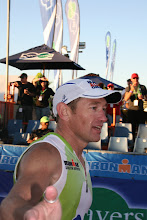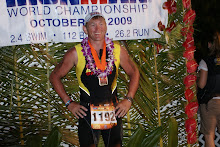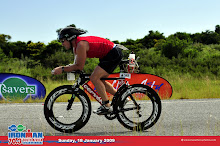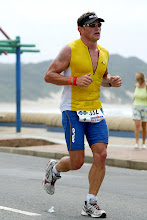Whenever
people and especially athletes discover I had a heart attack when they talk to
me, the first two questions that pops up every time are.
“How
will I know when I am having a heart attack” and
“Are
there any long term symptoms leading up to a heart attack”
Getting
these questions all the time I thought it might be worth writing a post about
it.
I am
not a Doctor and my advice is not based on medical evidence but it’s my
personal opinion and what I've experienced.
The
first question I did answer in one of my previous post heart attack symptoms and won’t go into detail
now.
But the symptoms are basically feeling dizzy, nausea's, pain on the inside
of the arms (biceps), having heart burn but higher up than the usual heart
burn. Eventually breaking out in a cold sweat and not able to walk up straight
and going into a fetal position due to the extreme pain.
What
I’ll try and answer today is how you know if the heart is not functioning as it
should be and are there any medium/long term signs. Personally I don’t think
there are definite signs but thinking back to the time leading up to the attack
and what I've experienced I came to realize that I was not my usual self. I
didn't take note of it and thought it was just part of endurance training.
What
I've noticed is that it felt like I had asthma and I even complaint to Kim,
saying that I must go to the Doctor (which I never did). I struggled to breathe
(tight chest), especially on my runs and also just as I started running. This
would then go away later during the run. I also struggled to do my once a week
fartlek session and could do it but was the odd 30 seconds slower than my usual
rate and going slower as the weeks tick on.
The
advantage of training with a power meter is that I've noticed that I was losing
power during my bike sessions especially when I was doing the shorter interval
sessions. When I was doing my endurance rides or recovery rides I could hold my
target power zone without any issues but when it came to the short all out 1
minute sessions or the 5 minute sessions above threshold I just couldn't hold
the numbers. My power was steadily declining with each session and nothing
helped no matter what I tried doing to improve the numbers.
Thinking
back I am sure that those sessions where the heart need to pump extra hard were
the ones where the heart showed that there is something wrong and just could
not perform at that high level.
One
other thing I also noticed was the week before the Xterra race when I had the
attack, I did a half Ironman and after the race I had some heartburn and pain
inside my arms. No issues during the race. The energy drink supplied during
that specific race was not what I was using and I thought that was the reason why
I experienced the heartburn. The pain inside my arm, I thought was my lack of
swim training the past couple of weeks.
How naive of me but an issue with my
heart never crossed my mind, never did I know that it was a heart attack on its
way.
I've
read lately that a lack of sleep over a long period can also lead to a heart
attack. With me having a full time job and not neglecting my family my day
started at 4am and ended at 11pm. My typical day was training before work,
working long hours in a stressful environment, spending time with the family
after work and then training again until late at night. Getting 5 hours of
sleep a night and some nights less over the past 6 years must have taken its
toll on my heart.
They've
said it many times in articles but only do I realize now that sleep is very
important and one thing one can’t neglect.
This
week on Twitter I saw a lot of tweets from people entering Ironman South Africa
and for the first time the event is sold out long before entries close. This is great news and I am glad
that Triathlon is growing at such a rate in South Africa. It’s great being
caught up in the moment and entering Ironman or being challenged by a friend to
do it but training for and racing an Ironman is very demanding and puts your
body to the ultimate test.
One
concern I do have is that a lot of entries are first timers and when I look at
some of these people’s tweets they haven’t done a long distance triathlon
before and some are new to the sport and haven’t done a triathlon at all. I
would urge these athletes or for that matter even the seasoned endurance
athlete to go for a proper medical exam once a year which include a proper scan
of the heart (EKG, Sonar, etc.) This might not help everybody but will show any
defect there might be that you are not aware of.
In
my case they might have picked something up or maybe not but
now it’s too late to know and all the “what if’s” can’t turn back the clock.
My
conclusion is that I don’t think there are specific signs leading up to a heart
attack but listen to your body. What I do believe is that every endurance athlete should do a proper
medical exam once a year to prevent any possible issues to ensure that you can do the
sport you love for many years to come.
Never think that this won't happen to you, that's what I thought.
Oh
and get enough sleep every night!
And what would a post be without a pic of my buddy, Eddy














Although chest pain or discomfort is the most common symptom of a Heart attack failure, some people will not experience chest pain at all, while others will experience only mild chest pain or discomfort. Others may experience one symptom, while some experience a combination.
ReplyDeleteThank you for sharing this vital information on how to stop heart attack. Heart attack is a life threatening disease and it is important that we aware people on how to Prevent and stop heart attack .The stats you have shared are shocking indeed. A healthy lifestyle with good eating habits can really help in stopping heart attack.
ReplyDelete"I like the valuable information you provide in your articles.
ReplyDeleteBest cardiologist in Indore